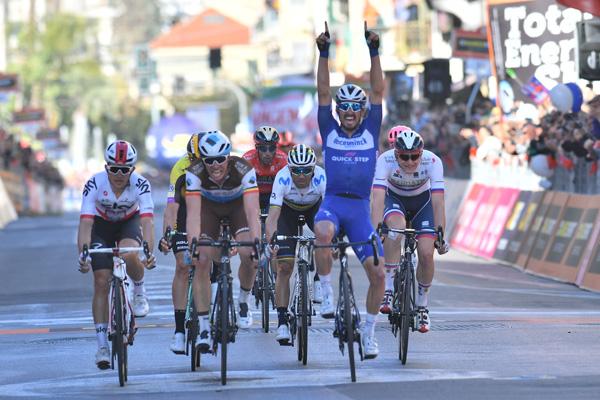- News
- Reviews
- Bikes
- Accessories
- Accessories - misc
- Computer mounts
- Bags
- Bar ends
- Bike bags & cases
- Bottle cages
- Bottles
- Cameras
- Car racks
- Child seats
- Computers
- Glasses
- GPS units
- Helmets
- Lights - front
- Lights - rear
- Lights - sets
- Locks
- Mirrors
- Mudguards
- Racks
- Pumps & CO2 inflators
- Puncture kits
- Reflectives
- Smart watches
- Stands and racks
- Trailers
- Clothing
- Components
- Bar tape & grips
- Bottom brackets
- Brake & gear cables
- Brake & STI levers
- Brake pads & spares
- Brakes
- Cassettes & freewheels
- Chains
- Chainsets & chainrings
- Derailleurs - front
- Derailleurs - rear
- Forks
- Gear levers & shifters
- Groupsets
- Handlebars & extensions
- Headsets
- Hubs
- Inner tubes
- Pedals
- Quick releases & skewers
- Saddles
- Seatposts
- Stems
- Wheels
- Tyres
- Health, fitness and nutrition
- Tools and workshop
- Miscellaneous
- Cross country mountain bikes
- Tubeless valves
- Buyers Guides
- Features
- Forum
- Recommends
- Podcast
news
 Julian Alaphilippe wins Milan-Sanremo ( LaPresse - D'Alberto)
Julian Alaphilippe wins Milan-Sanremo ( LaPresse - D'Alberto)UCI postpones planned Classics Series after backlash
The UCI has put back until 2021 the planned introduction next season of its new Classics Series, which brings together 21 of cycling’s leading one-day races, after a backlash from teams and race organisers.
World cycling’s governing body is bringing in the competition to introduce a season-long narrative as well as creating a general classification.
However, the proposals have not been popular among teams, with WorldTour outfits required to compete in all events, nor organisers who would be restricted in their ability to issue wild card entries.
Announcing the postponement of the series, the UCI said: “The decision will give time to build this new series together with all the parties involved. The principle of this series had been unanimously agreed by stakeholders in September 2018.
“Convinced of the merit of this new series, that would provide a source of additional revenues distributed between concerned parties thanks to improved exposure of one-day races, the UCI will continue discussions with representatives of professional road cycling with the aim of a rapid launch.”
Among the most vociferous opponents of the Classics Series was The Association of Men’s Professional Road Cycling Teams (AIGCP), which in October published an open letter outlining a long list of grievances against the UCI.
Like his predecessor Brian Cookson and Pat McQuaid before him, current UCI president David Lappartient has discovered that trying to reform a sport that operates on a model unlike any other, with an array of competing interests, is a near-impossible job.
Outside the road cycling world championships – the UCI’s biggest single source of income each year through its ownership of the broadcast rights – races are owned by a wide array of organisations.
The three biggest are ASO, owner of the Tour de France, the Vuelta and other races including Paris-Roubaix and Liege-Bastogne-Liege, RCS Sport, which owns the Giro d’Italia, Milan-San Remo and Il Lombaria, among others, and Flanders Classics, which has races including the Tour of Flanders and Gent Wevelgem.
The money that ASO in particular makes through the sale of broadcasting rights around the world makes it the most powerful force in the sport, and it has resisted all attempts by teams, which are entirely reliant on sponsorship or, in a handful of cases, the deep pockets of their owners, to obtain a share.
Barely a season goes by without a top-flight team folding due to a sponsor pulling out, and efforts by some of the leading outfits to create their own events through the Velon joint venture and its Hammer Series have given rise to further conflict between them and the UCI.
The governing body, for its part, is keen to internationalise the sport and create more events outside its traditional European heartland, for example in the Middle East and the Far East, but such efforts have also met with resistance from teams due issues such as travel and the calendar becoming increasingly stretched throughout the year.
To anyone who has followed the politics of road cycling over the past couple of decades, one thing is clear – aligning the various competing interests in the sport to everyone’s satisfaction isn’t going to be achieved soon, if ever.
Haven't spent much time in Bristol for decades - but back in the day much was pretty gridlocked at least once per day. Has it got better?
My thinking is that reversing restricts your view of the road and being in a driveway restricts your view of the road too. Reversing whilst being...
Um. Call me picky but what's the point in spec'ing an internally routed head tube then not using it? it looks a bit naff.
It's only for a minute
Another Conservative bemused at how but a Conservative policy is turning out
would be good to see you test the Newmen wheels the weight/price ratio is extremely good and suggests that europeans can match the chinese in this...
I don't think you have. I think their point was:...
Should be a lifetime driving ban. Who could seriously argue against the justice of that in this case?
Another 'sound-alike' mid tier offer, so I get all excited and buy a bunch of them thinking I've got an absolute steal. Only to then realise I've...
first cast out the beam out of thine own eye